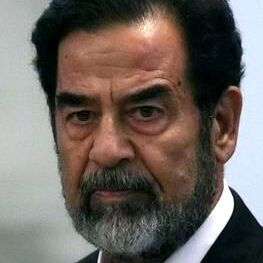
Iraqi Violence Follows Hussein’s Conviction
If the toppling of Saddam Hussein’s statue on April 9, 2003, in central Baghdad symbolized the end of Hussein’s brutal rule, surely his conviction and sentencing to execution by hanging would cap off the victory. Indeed, President Bush hailed yesterday’s verdict as “a milestone” in efforts to “replace the rule of a tyrant with the rule of law” and a triumph for Iraq’s new democracy.
Sadly, seen in the context of the current state of chaos and division in Iraq, the reality is not nearly so rosy.
Convicted on November 5 for crimes against humanity in relation to the murder of 148 people in a Shiite town in 1982—merely the tip of the iceberg when it came to the murderous, oppressive reign of Saddam Hussein—the former Iraqi leader now faces execution pending the verdict and sentence being upheld by an appeals panel. Meanwhile, Baghdad and three surrounding provinces are under an open-ended curfew designed to prevent violence in reaction to the verdict—a curfew, mind you, that Iraqi and U.S. authorities are loath to uphold. In Hussein’s hometown of Tikrit, for example, instead of enforcing the curfew, police “led a mob of thousands of demonstrators waving photos of Saddam and shooting ak-47 rifles into the air” (Associated Press, November 6). In Baghdad’s central Shiite neighborhood of Karadah, police likewise tolerated protesters celebrating Hussein’s demise.
Sadly, the success of removing one of Earth’s most ruthless and cruel dictators, now cemented by this death sentence, has been largely overshadowed by the ensuing sectarian violence between Shiites and Sunnis together with the insurgency directed against the U.S. presence in Iraq. As Associated Press reported Sunday,
[I]n the end, Saddam’s fate is not what’s driving the violence in Iraq now. Instead, religious, nationalistic and sectarian passions have taken over and are tearing the country apart.
Even if it causes a spasm of violence, Saddam’s verdict is just a symbol of the deeper, underlying problems. Sunnis are alarmed at the prospect of Shiite domination. Shiites are fed up with attacks by Sunni extremists. Without an effective government to protect them, both communities have become locked in a murderous cycle of reprisal killings that looks set to continue. … It’s not that Saddam’s fate has no effect at all: The sectarian fighting has, indeed, served to boost his image among many of his fellow Sunnis, even those who were happy to see him ousted from power three years ago. With their minority community under siege since they were ousted from decades of power, many Sunnis have rallied around Saddam, forgetting the abuses suffered by all communities under his hard-line rule. Thus, Saddam’s execution could turn him into a martyr for some Sunnis ….
America did not win the war with the toppling of Hussein’s statue. Neither will Saddam’s conviction—or execution—makes things any better for the U.S. in Iraq. There is a far more fundamental reason for America’s failures in Iraq than sectarian hatreds or insurgencies. Read “Weakness in Victory” and “The Iraq Campaign and American Hypocrisy” from our June 2003 Trumpet to find out more.
